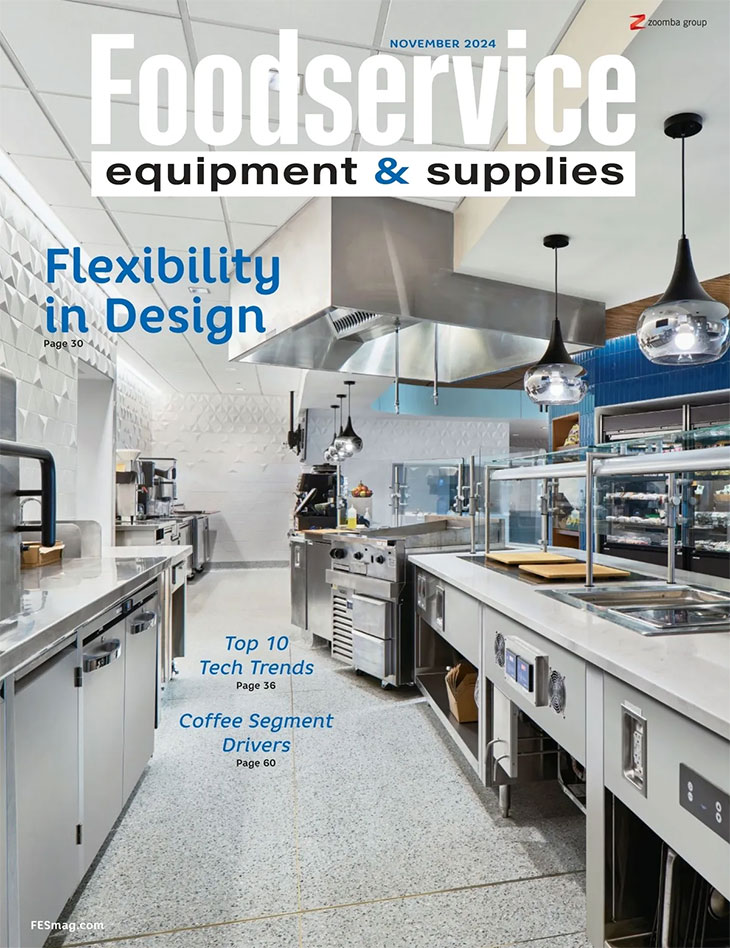Content sponsored by: Heritage Parts
There’s a secret assailant wreaking havoc on commercial kitchens. The culprit, which seems benign enough, is a critical component in all commercial kitchen operations: water. Steamers, boilers, dishwashers, ice machines and soda fountains all require water to perform, but minerals and other contaminants in your H2O can lead to inefficiencies, cause frequent equipment failure and even affect food safety.
Many operators make the mistake of assuming water filtration is a simple, do-it-yourself job with a one-size-fits-all solution. The truth is the water you access is completely unique to your geographic area and can vary greatly from the water across the country or even across the street. Because the water flowing through your pipes has its own combination of chemicals and contaminants, you need to consult an expert to determine the right solution for your operation.
Before finding the right solution, however, it’s important to get a better understanding of the problem. Of all the hazards caused by improper water treatment, scale is one of the most common, and few operators understand the full impact scale buildup can have.
Scale Is a Slippery Slope
Scale, the chalky deposit left behind by hard water, can be a hidden menace to kitchen equipment. A common issue is reduced water flow. Any equipment with pipes or hoses can be the victim of reduced water flow when scale builds up in these small spaces, reducing efficiency and even damaging the equipment itself. Additionally, scale deposits in ice machines and drink applications can affect the flavor of the ice and drinks produced.
Heating inefficiencies are another major factor to consider. Scale buildup can act as an insulator on the surface of equipment such as steamers and coffeemakers. This insulation impedes heat transfer, which wastes energy, extends cooking times and can even compromise food safety due to interfering with food temperature control. Another way scale buildup can affect food safety is the potential proliferation of bacteria. By creating an uneven, porous surface, scale can trap moisture, enabling bacteria to grow.1
Preventing scale accretion is especially of interest to operations that do a lot of steam cooking. Continuous availability of high-quality water is critical to optimal steam equipment operation, since chemicals and other contaminants in water can coat and corrode the steaming components. Scale buildup can deteriorate steamer performance, reduce food quality and contribute to premature steamer component failures.
Finding the Right Filtration Solution
To prevent scale buildup and other water-related problems, you’ll need to find a solution that fits your operation. These two factors can help in your quest: (1) the contaminants in your water and (2) the type of equipment in your kitchen. Water contaminants can range from sand and minerals, to chemicals the municipality adds in order to inhibit pathogen growth and corrosion. Any of these contaminants can cause scale, clogged supply lines and corrosion.
Preventing the damage caused by untreated water starts with partnering with a water-filtration technician who can properly test your water and recommend the correct filtration system. Many water-filtration systems are available, and each solution has its advantages.
- Polyphosphate feeders can help control scale, but they are effective only in low-scale water areas.
- Commercial water softeners can be very effective in higher-scale situations, but in heavy-use applications (like a dish machine), the salt can be expensive.
- Reverse-osmosis systems can control almost any water contaminant, but they are costly, waste a lot of water during the process, and don’t efficiently handle high-flow situations.
- Carbon block filtration eliminates impurities but has minimal impact on reducing the minerals that cause scale in areas with high levels of hard water.
- Acid feeder systems meter an active ingredient that binds to scale-causing molecules such as calcium and magnesium, keeping them soluble and unable to bind to metal surfaces when the water state is changed.
A Partner in Preventive Maintenance
Once you’ve installed an appropriate water-treatment system, it’s important to maintain that system along with the rest of your equipment, to ensure everything continues functioning efficiently. At Heritage Parts, we keep detailed reports and records to help you track regularly scheduled maintenance and repairs. Our parts specialists can even help you predict what problems might come up down the road, so you can stock the parts you’ll need before breakdowns happen.
With the largest inventory of Genuine OEM parts in the country, more than 99 percent parts identification accuracy and same-day shipping on in-stock parts, Heritage Parts is a provider you can rely on to help keep your equipment running at optimum efficiency. Call 1-800-458-5593 to speak with your dedicated parts specialist, or visit HeritageParts.com to create your own personal online account and order parts anytime.
1 “Legionnaire’s Disease Linked to Limescale Buildup,” The Salt Institute, October 6, 2013, http://www.saltinstitute.org/research/legionnaires-disease-linked-to-limescale-buildup (accessed March 25, 2016).




